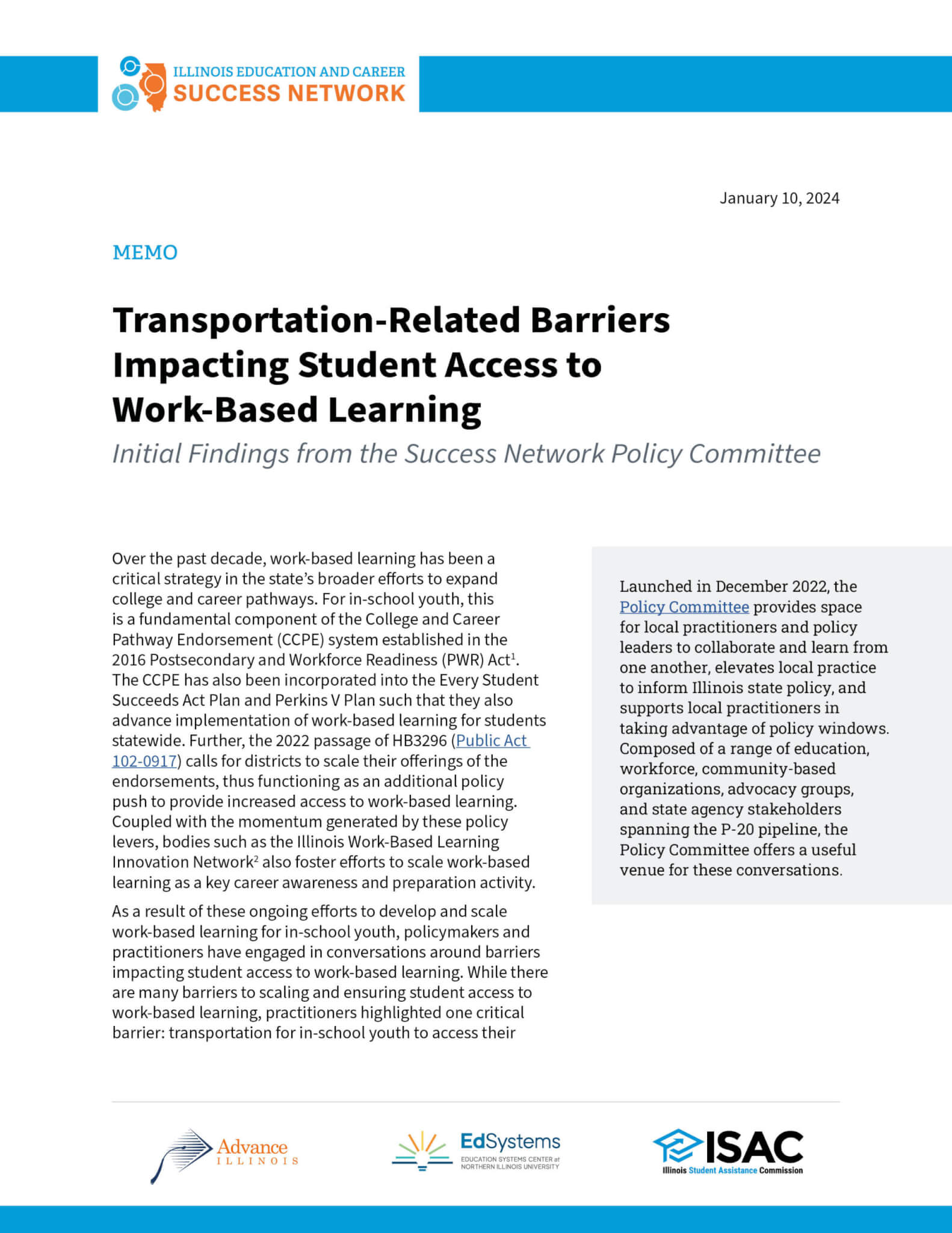Work-based learning programs provide students with invaluable hands-on experiences, connecting classroom learning to real-world applications. However, for many students, transportation challenges can become insurmountable hurdles, preventing them from reaping the benefits of work-based learning.
The Success Network Policy Committee, staffed by EdSystems in partnership with Advance Illinois and ISAC, convened a workgroup to explore work-based learning transportation challenges. The Policy Committee is now publishing the first of two memos, which shed light on the significant transportation-related barriers students face in accessing work-based learning opportunities. This resource identifies and analyzes challenges impacting in-school youth at the school district, local, and system levels.
The group’s initial findings outline key areas of concern, including:
- District and Local Challenges: Public transportation access varies greatly by region and community. In areas without access, students must rely on private transportation. When it is present, cost, logistics, and schedules can create a dilemma where students must weigh the cost versus the perceived benefit of participating in work-based learning.
- System Challenges: At the state level, there are restrictions on vehicle type for student transportation, which vary and can present challenges for districts that may be looking to transport smaller groups of students. For districts with permissible vehicles, driver credential requirements also limit the pool of available drivers.
- Equity Considerations: As the state becomes increasingly diverse, it is recommended to consider the equity implications of these barriers and any potential solutions, particularly for low-income students and students in communities with disproportionately high barriers to transportation.
The Policy Committee hopes to equip policymakers, educators, and community partners with the knowledge and tools necessary to break down these barriers and pave the way for a more equitable work-based learning landscape in Illinois by illuminating some of these core challenges. As the workgroup enters the final stages of its work, it is exploring potential solutions and engaging students in this conversation with the plan of releasing a second memo in early 2024 that will further empower key stakeholders to improve work-based learning access for students.

